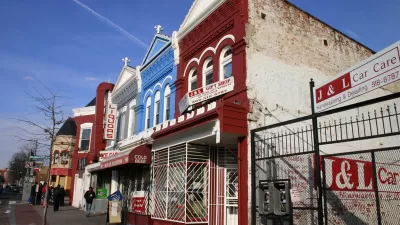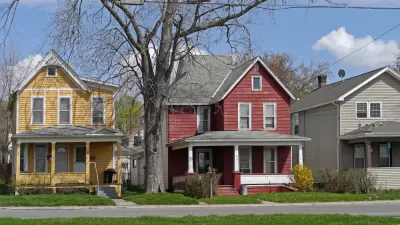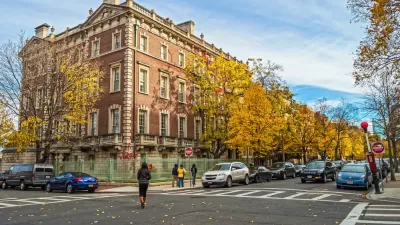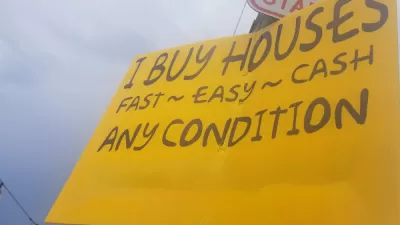Given the unprecedented nature of the gentrification occurring in American cities, many cities have had to respond swiftly to the pressures of changing neighborhoods. A new article surveys cities using property tax relief to support urban homeowners.

(*UPDATED 3/6/14) Timothy Williams writes of the actions of some cities to support the longtime homeowners in gentrifying neighborhoods who have seen their property values spike as a result of the recent trend of gentrification and urbanization around the country.
Many of the efforts have “centered on reducing or freezing property taxes for such homeowners in an effort to promote neighborhood stability, preserve character and provide a dividend of sorts to those who have stayed through years of high crime, population loss and declining property values,” writes Williams.
“In doing so, cities are turning urban redevelopment policy on its head and shunning millions in property tax revenue that could be used to restore municipal services that were trimmed during the recession because of budget cuts, including rehiring police officers.”
Williams cites the example of *Philadelphia, which recently passed two pieces of legislation meant to support longtime homeowners in its urban areas: “The first, the Homestead Exemption, allows most homeowners to reduce the assessed value of their house by $30,000 for tax purposes, while a second law, called Gentrification Protection or LOOP, short for Longtime Owner Occupants Program, is more narrowly focused on protecting homeowners from increases to their property tax bills because of gentrification.”
FULL STORY: Cities Mobilize to Help Those Threatened by Gentrification

Study: Maui’s Plan to Convert Vacation Rentals to Long-Term Housing Could Cause Nearly $1 Billion Economic Loss
The plan would reduce visitor accommodation by 25,% resulting in 1,900 jobs lost.

North Texas Transit Leaders Tout Benefits of TOD for Growing Region
At a summit focused on transit-oriented development, policymakers discussed how North Texas’ expanded light rail system can serve as a tool for economic growth.

Why Should We Subsidize Public Transportation?
Many public transit agencies face financial stress due to rising costs, declining fare revenue, and declining subsidies. Transit advocates must provide a strong business case for increasing public transit funding.

How to Make US Trains Faster
Changes to boarding platforms and a switch to electric trains could improve U.S. passenger rail service without the added cost of high-speed rail.

Columbia’s Revitalized ‘Loop’ Is a Hub for Local Entrepreneurs
A focus on small businesses is helping a commercial corridor in Columbia, Missouri thrive.

Invasive Insect Threatens Minnesota’s Ash Forests
The Emerald Ash Borer is a rapidly spreading invasive pest threatening Minnesota’s ash trees, and homeowners are encouraged to plant diverse replacement species, avoid moving ash firewood, and monitor for signs of infestation.
Urban Design for Planners 1: Software Tools
This six-course series explores essential urban design concepts using open source software and equips planners with the tools they need to participate fully in the urban design process.
Planning for Universal Design
Learn the tools for implementing Universal Design in planning regulations.
Ascent Environmental
Borough of Carlisle
Institute for Housing and Urban Development Studies (IHS)
City of Grandview
Harvard GSD Executive Education
Toledo-Lucas County Plan Commissions
Salt Lake City
NYU Wagner Graduate School of Public Service





























